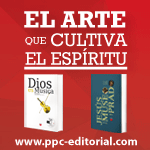ACTIVIDAD:
1- Busca un cuadro, obra de arte, escena gráfica, etc. en la que aparezcan los símbolos de los 4 evangelistas.
2- Imprímelo o recórtalo y pégalo en un folio que, después de presentarlo y exponerlo en la clase, lo pegarás en el cuaderno.
3- Antes de presentarlo, localiza y analiza con flechas y breves textos esos SÍMBOLOS, demás de lo que comentemos en clase, te ayudará la última imagen ce las "cuatro miradas sobre Jesús".
4- Realiza una NUBE de ETIQUETAS sobre los libros de la BIBLIA similar a las siguientes que te muestro abajo. Puedes hacerla de todos los libros o por una parte los del Antiguo Testamento y, por otra, los del Nuevo Testamento. Esta actividad la puedes hacer en INGLÉS o en CASTELLANO. Como lo desees.
- En la siguiente BIBLIA online tienes una versión en castellano y también en otros idiomas, como el INGLÉS, francés, etc.
- Libros de la Biblia:
- Libros de la Biblia:
- Libros del Nuevo Testamento:
-- Cómo hacer una nube de etiquetas: lo veremos en clase paso por paso, pero te queda aquí un esquema que podrás seguir DESPUÉS de la explicación:
0- Entrar en un Portal Web 2.0 que nos dé este servicio.
1- Pulsa sobre la pestaña ADVANCED para escribir palabras y expresiones o sintagmas, seguidos de :111 (tamaño deseado). Recomiendo que previamente escribas las palabras en un archivo .TXT
Otras Pestañas útiles: Editar; Font;
Layout (orden y posición); Color, etc.
2- Save to public gallery (título y usuario)
3- Ahora, te da un cuadro con las palabras y, más abajo, el
código EMBED que es un link, así que
mejor capturarlas en imagen para insertar en diversos medios
4- Capturar la NUBE como una IMAGEN.
- Saludos a los alumnos de 3º ESO
































